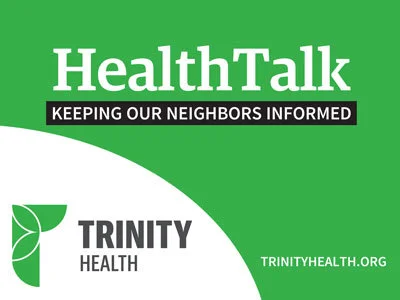Finances may seem like something to worry about after high school. When jobs are full-time, college bills start rolling in, and taxes become real. But according to Gregory Barnhart, a financial advisor with First Command, the best time to start building strong financial habits is right now. Whether you’re mowing lawns, freelancing, or working a part-time job on base, learning how to manage your money early can change the entire course of your future.
Barnhart emphasizes that the foundation of a healthy financial life begins with three principles: be yourself, spend less than you earn, and avoid debt. For high schoolers, this starts with finding a way to earn income and then resisting the pressure to spend it all. “The earlier you start saving and making smart decisions, the easier everything becomes later.” Barnhart said. He stressed that savings don’t need to be massive, but they need to be consistent.
College planning is one of the most intimidating parts of a teenager’s financial future. Even for students hoping to earn scholarships or qualify for financial aid, Barnhart encourages planning for the possibility of unexpected expenses. His advice: take college classes in high school to save on tuition later, and if possible, start a college savings account like a 529 plan. These accounts can offer tax advantages and allow families to plan ahead without causing tax complications. “Do anything you can with less cost,” he said. “Being strategic early on helps students and families avoid unnecessary debt later.”
When it comes to investing for the long term, many teens and even adults get overwhelmed by the vocabulary. Barnhart explained the difference between Roth and Traditional IRAs in a way that makes it approachable. A Traditional IRA allows you to invest pre-tax income and pay taxes when you withdraw the money in retirement, while a Roth IRA is funded with after-tax money and grows tax-free from then on. “Everyone should care.” Barnhart emphasized, noting that although you can’t apply one rule to everyone, teens tend to benefit more from Roth IRAs. Because young people often earn lower income now than they will later in life, paying taxes now means they can enjoy tax-free growth in the future.
On the subject of saving, Barnhart explained that the smartest place to keep your money depends on what you’re saving for. “If you’re going to use the money within a year, a traditional bank savings account is best, low risk, easy to access,” he said. “But if you’re saving for college or long-term goals, consider a college savings account or even investing through a retail brokerage account.” He noted that brokerage accounts don’t have strict rules like retirement accounts do, and teens can buy shares of companies they believe in, with guidance.
Barnhart also touched on the importance of credit, which many teens are unfamiliar with until they’re denied a loan or hit with a high interest rate. “Credit matters. It’s your score for borrowing things like a house or a car.” he explained. The key is not to open a credit card unless you have money in the bank to pay it off immediately. When used responsibly, a credit card can help young people build credit by making small purchases, like gas, and paying the balance in full each month.
One of the most powerful tools in personal finance is compound interest. Barnhart explained it like this: “If you have $100 and earn 10% interest in one year, you’ll have $110. But with monthly compounding, the 10% is applied to your growing balance every month, not just the original $100.” Over time, compound interest makes a significant difference in investment growth, especially if you start young.
As students move into their 20s, Barnhart warned of common pitfalls. “Living beyond your means, overspending on credit, and not saying no when you can’t afford something. These are the mistakes that create long-term problems.” he said. Creating a realistic budget and sticking to it can prevent these issues before they even begin.
When teens start earning money through part-time jobs or freelance work, taxes quickly become relevant. Barnhart broke it down: “About 17% of what you make goes to taxes. 12% of that is for FICA: Social Security and Medicare, and the rest goes to state and federal taxes.” He added that while taxes may feel frustrating, they’re much more manageable for young people earning under $100,000 per year and are not business owners. Still, understanding your paycheck is an important part of becoming financially literate.
For students looking to begin investing, Barnhart suggests starting small and safe. “Talk to a financial professional. Many parents can open a UGMA: Uniform Gifts to Minors Act account so that teens can start putting money aside early.” He emphasized that long-term financial success is built on three things: time, money, and rate of return. In other words, start early, put as much money as you can afford, and choose wisely what you invest in.
When asked what a financial advisor actually does, Barnhart said it’s not just about crunching numbers. “We take the client’s data, run it through programs, and use it to make specific recommendations to meet their goals.” he said. While degrees in finance can help, he noted that a license is the only requirement and that communication, empathy, and understanding people are the most important skills. “If you’re involved in sports, clubs, or anything social, you’re already developing the skills you need.”
Emergencies and big purchases are inevitable, so Barnhart encourages students to prepare mentally and financially. “It’s not the end of the world if you need to take on debt temporarily, but you can’t go back. You have to start where you are and change your habits moving forward.”
When asked about early retirement, Barnhart said it’s completely possible if you plan for it early and consistently. “As long as your goals match your effort, you can do it, but talk to a professional for help.”
Military families often face unique financial challenges. Deployment, relocation, and access to benefits require specific planning. “The products that work for civilian families might not work for military families,” Barnhart said. “That’s why 90% of advisors at First Command are veterans or military spouses. They understand the lifestyle, the risks, and the importance of planning ahead.”
For those wanting to learn more about personal finance, Barnhart recommends Simple Wealth, Inevitable Wealth for understanding how to structure retirement, and The Retirement Savings Time Bomb for learning how to prepare for the unexpected. Both offer simple insights for complex systems and serve as great resources for teens and families alike.
In the end, Barnhart’s advice boils down to a message of self-discipline and intention. Start now, start small, and start smart. With the right habits, even high school students can build a solid financial future, one dollar at a time.













